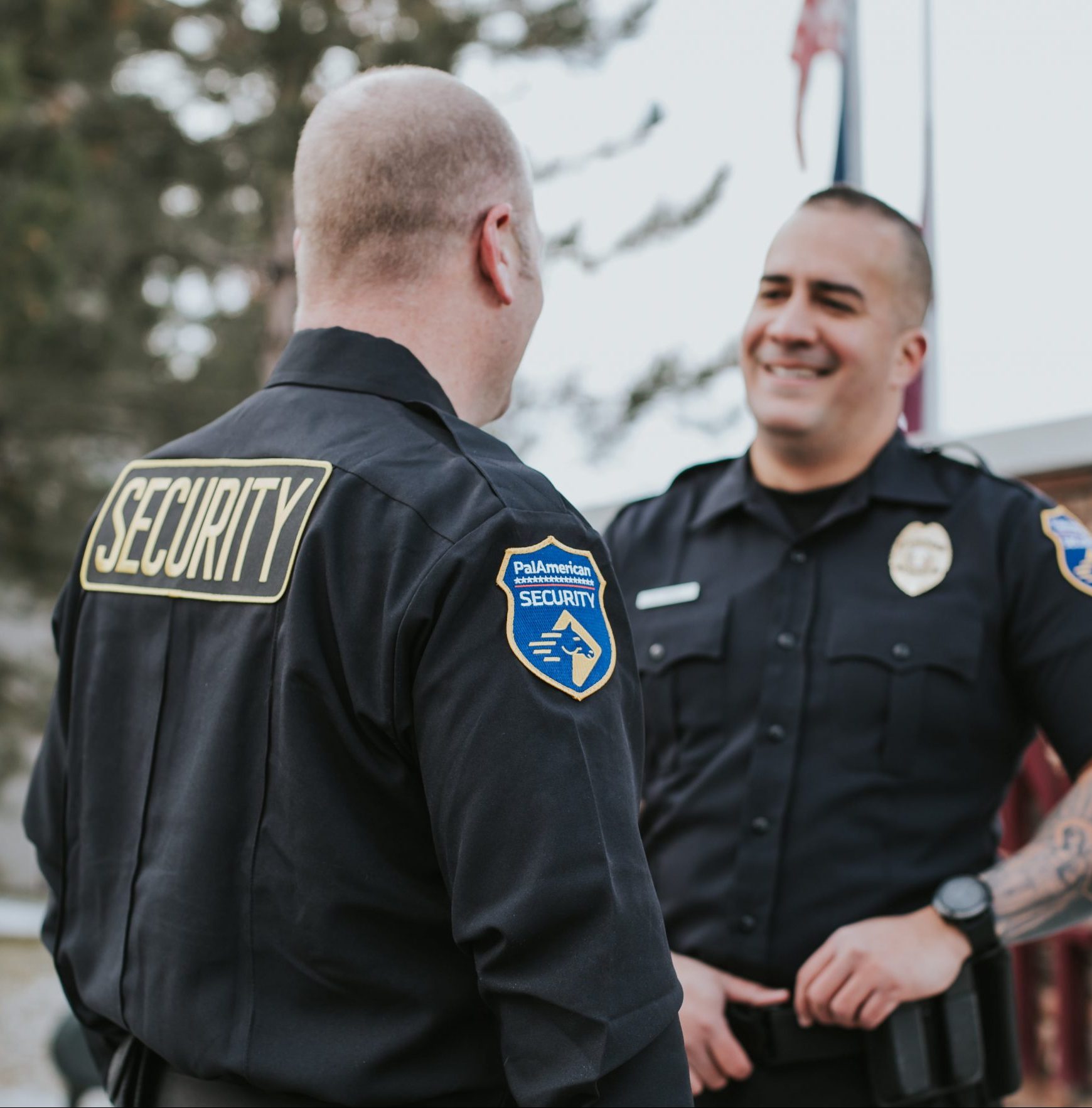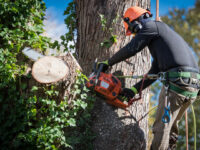The Importance of Being a Security Guard
A security guard’s highly visible presence acts as a deterrent to crime. Most potential shoplifters, burglars and muggers will reconsider their actions when they see a security officer patrolling the area.
When emergencies occur, security guards must be able to manage situations while exhibiting strong communication skills and decisive leadership until first responders arrive. The guard must also able to write clear and concise reports. Contact Baltimore Security now!

Despite the fact that security guards do not have law enforcement powers, they can deter crime by their very presence. They are often trained to assess the risks associated with different security threats and vulnerabilities, and they use their expertise to develop risk mitigation strategies. They may also train employees, tenants, or visitors on security protocols and best practices, reducing the likelihood of a security incident occurring.
Security guards can also act as a visual deterrent by their uniform and appearance. Modern private security guards often look very similar to police officers, and they often carry radios, badges, ranks, and duty belts. This deters criminals from approaching or committing crimes in the vicinity of a security guard, as they may be afraid of being caught and punished.
In addition, security guards are able to deter criminal activities by patrolling the property. In a study on security guards in mass transit systems, researchers observed that stations with security guards exhibited significantly less crime than those without them. The researchers monitored the patrol behavior of guards in treatment and control conditions, using hand-held trackers to measure how many times they visited each station’s target locations.
Armed security guards were found to be particularly effective at deterring crime, as they sent a strong message that the perpetrator would be met with force if he or she attempted to commit an offense on the property. This deterrent effect was even stronger when the security guards were wearing uniforms that made them easily identifiable as law enforcement agents.
Unarmed security guards also served as a powerful deterrent, but they were not as effective as armed security guards. They were not able to patrol as often, and they did not have the ability to use force if needed.
In addition, the researchers noticed that unarmed security guards did not report all incidents to the police. For example, suicide attempts, ticketless riders, trespassing that did not cause delays to trains, and minor public disorder incidents were all self-reported by security guards. These types of incidents are not typically reported to the police, as they are handled at a more localized level by the guards themselves.
Patrols
Security patrols are one of the most important aspects of a mobile security guard’s job. They provide a visible deterrent for criminals and vandals, which can help prevent security breaches and other incidents. Patrols can also be a great way to keep an eye on maintenance issues, like burst pipes or unlocked doors and windows. XpressGuards provides patrol services that are flexible and tailored to your unique needs.
During a patrol, your security guards will walk or drive around a designated area. They’ll typically have a GPS unit or other device that will track their route. This allows you to know where they were and how long they spent in each location. If they encounter a potential security breach, they can also record the incident and report it to you.
When selecting a mobile security patrol service, look for a company that offers thorough training and ongoing support. This will help your staff to improve their skills and develop a strong work ethic. It will also ensure that they’re prepared to handle any emergency situations that may arise.
If your security guards need to carry weapons on duty, make sure they’re properly trained in how to use them safely and responsibly. They should also be trained to recognize suspicious activity, such as people who don’t fit in or appear out of place. Security guards are also often asked to patrol buildings that contain hazardous substances, so they need to be familiar with the risks involved.
Another important aspect of security patrols is their ability to respond quickly and efficiently to security concerns. Whether it’s a security breach, an alarm trigger or suspicious behavior, patrols can be on the scene within minutes to deter crime and other incidents.
A security patrol can also detain suspects until police arrive to take over the investigation. In some cases, they can also act as a liaison between law enforcement and businesses to keep them informed of any developments.
A direct patrol is a security patrol that focuses on specific areas of your business that are vulnerable to security breaches or where crimes have previously occurred. Using this approach can prevent security breaches from occurring in the first place by targeting high-risk areas. It can also reduce the time it takes for a security guard to respond to a security breach by reducing the amount of space they have to cover.
Emergency Response
Security guards are trained to respond promptly and efficiently in case of emergency situations like fires or medical incidents. Their immediate actions can save lives and minimize property damage. In addition, their visible presence deters criminal activities by reassuring individuals and promoting a sense of safety in various settings.
The first step in managing an emergency situation is assessing the situation and determining what steps are needed. This is the core of a security guard’s training, as they learn about essential emergency response protocols such as evacuation procedures and first aid.
Upon identifying the emergency, security guards can take immediate action such as calling 911 or triggering an alarm system. They can also notify occupants of the premises in a timely manner through public address systems or other means of communication that is appropriate for the scenario.
When evacuating a building, security guards can provide clear instructions and guide people towards designated safe zones. They are also trained in crowd control, which helps to maintain order and prevent panic during high-stress situations. If necessary, they can also assist with securing the premises or restricting re-entry until it is safe to do so.
For individuals experiencing a medical emergency, security guards are able to take basic lifesaving measures such as administering CPR or controlling bleeding until professional help arrives on the scene. They can even use an Automated External Defibrillator (AED) on those who experience sudden cardiac arrest, which can significantly improve the chances of survival.
Coordination with law enforcement and emergency services is a crucial aspect of security guard duties during emergencies. This involves providing them with important information about the situation, guiding them to different areas if needed, and helping to manage the crowds.
In addition, security guards can offer ongoing support after an incident has been resolved. This may include damage assessment, securing the area, or guiding individuals as they recover. Moreover, their ability to communicate effectively and act quickly in emergencies can significantly reduce response time. This is why security guards are often the first on-site personnel that can react to emergencies.
Reporting
As a security guard, you’re responsible for much more than enforcing rules and protecting property. One of the most important tasks you will have to complete during your shift is writing a detailed security report. These reports are an essential part of your job, and they will be read by everyone from managers to legal counsel. Therefore, it’s important that you write a security report that is accurate and free of errors.
A quality security guard report starts with the basic information, such as the time and date of the incident. It should also include your name, job title, and employee identification number. This is so that anyone who reads your report will be able to identify you as the author. After this, you should include all of the relevant details about the incident. This includes the names of any witnesses, as well as a detailed description of what happened. Finally, you should provide the details of any actions that were taken by your supervisor.
Security guards are often under pressure to complete their reports quickly and accurately. However, this doesn’t mean that they should skip over important details or ignore important points in the report. It’s important to remember that your security report will be read by a variety of people, including your manager and any police or fire department employees who may need to see the report. Therefore, you need to make sure that your report is comprehensive and detailed so that it can be understood by everyone who reads it.
In addition, you should also pay attention to the grammar and spelling of your report. A poorly written security guard report can make a bad impression on your employer and could even lead to legal issues. In order to avoid this, it’s important that you proofread your report carefully before submitting it.
Lastly, it’s important to keep in mind that your security reports will have a significant impact on your career. A good security guard report can help you get a new position or even a promotion. A bad security guard report, on the other hand, can damage your reputation and make it difficult to find a new job.






